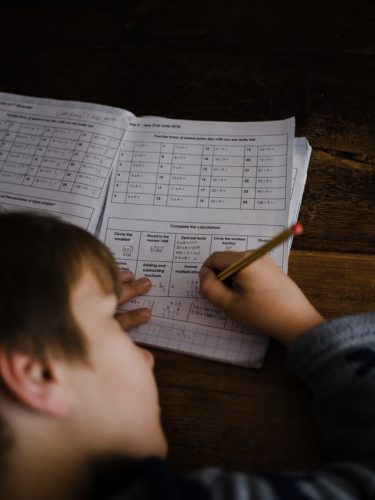
Although it’s a difficult topic to discuss, children must learn about COVID-19. Here are some things you can teach your kids about the disease and what we’re all going through now.
Remember To Be Reassuring
Before anything else, remember that now is a stressful time for everyone. It can be especially distressing and confusing to children who do not entirely understand what’s going on. Always approach and reassure them. There’s no need to spark panic and anxiety in them. Be mindful of what you say and how you say it.
Start With What They Know
When it comes to discussing something new, it’s best to start with how much they already know about the topic. This way, you know how to start the conversation. Likewise, you get a better idea of what details you have to discuss with them.

Make sure that you use language appropriate for the age of your children. The information about the new disease can be overwhelming, and anything overtly medical may be too technical for younger individuals. You can ask, “Do you have any questions about the disease you might have seen on TV?”
Discuss The Basics With Them
After you find out how much they know, you can begin to discuss the basics. Teach them about the symptoms and tell them that since it’s new, doctors still have more to learn about it. Older kids may also ask about cures.
If they have questions and you’re unsure of the answer, do not make guesses. It’s especially dangerous to feed them incorrect details when it comes to health matters. Together, look up the answers to these questions through reliable sources. For reference, check official websites of the World Health Organization (WHO), UNICEF, and the Centers for Disease Control and Prevention (CDC).
Show Them How To Protect Themselves
Another important thing you should discuss is how they can protect themselves from the coronavirus. Showing kids preventive measures will assure them that there’s something they can do to stay safe.

One way is by teaching them to wash their hands properly. You can show them a video as well as demonstrate it yourself. Encourage them to sing part of their favorite song to ensure they wash their hands long enough. You can also show them how to scrub all areas by using this trick. Substitute paint for soap so that they can see how handwashing techniques expertly cover their entire hands.
Next, you can show them proper sneezing and coughing etiquette, in case they haven’t learned that already. Remind children to cover their mouths with a tissue or handkerchief when sneezing or coughing. If they don’t have any on-hand, they can also do so into the nook of their elbow.
Lastly, ask them to come straight to you if they feel unwell. However, try not to scare kids when discussing symptoms and reassure them that you’re taking measures to keep them safe.
Explain Why Schools Have To Close Down Temporarily

Although some may not miss it, one question kids might ask is why they’re not going to school. Keep your explanation simple. Talk about how temporary closures will help keep people safe as they stay at home. Such will lessen people having to interact with another, which may spread the virus.
Teach Them How To Be Compassionate
Another unfortunate problem that we’re facing today is the stigma surrounding the new disease. Some people cast out others due to their ethnicity, and some patients themselves are facing discrimination.
It’s thus essential for you to teach compassion during these trying times. Jessie Mahoney, MD, says, “We have an opportunity as parents to focus our parenting energies on cultivating, compassion, connection, and love.” Remind your children that the virus can affect anyone. It is not a disease that you can tie to a specific group of people.
Pay attention to the words they choose when talking about the topic. Do not attach nationalities or locations to the disease. Avoid referring to people as “cases.” Don’t use words such as “pandemic” or “plague. Steer clear of phrases like “infecting others” or “spreading the disease to others.”
Summary
COVID-19 is a reality that we’re living through today. Although kids will not be able to comprehend it fully, it’s essential for us to still teach them about it.
Begin with reassuring them, getting rid of any anxiety or fear. Next, build on what they already know. Ensure that they know essential basics such as symptoms and equip them with knowledge of protective measures. Lastly, emphasize the lesson of compassion for everyone going through these challenging times.
By teaching your children about the disease, you help them not only grow but also contribute to a more well-informed community.
